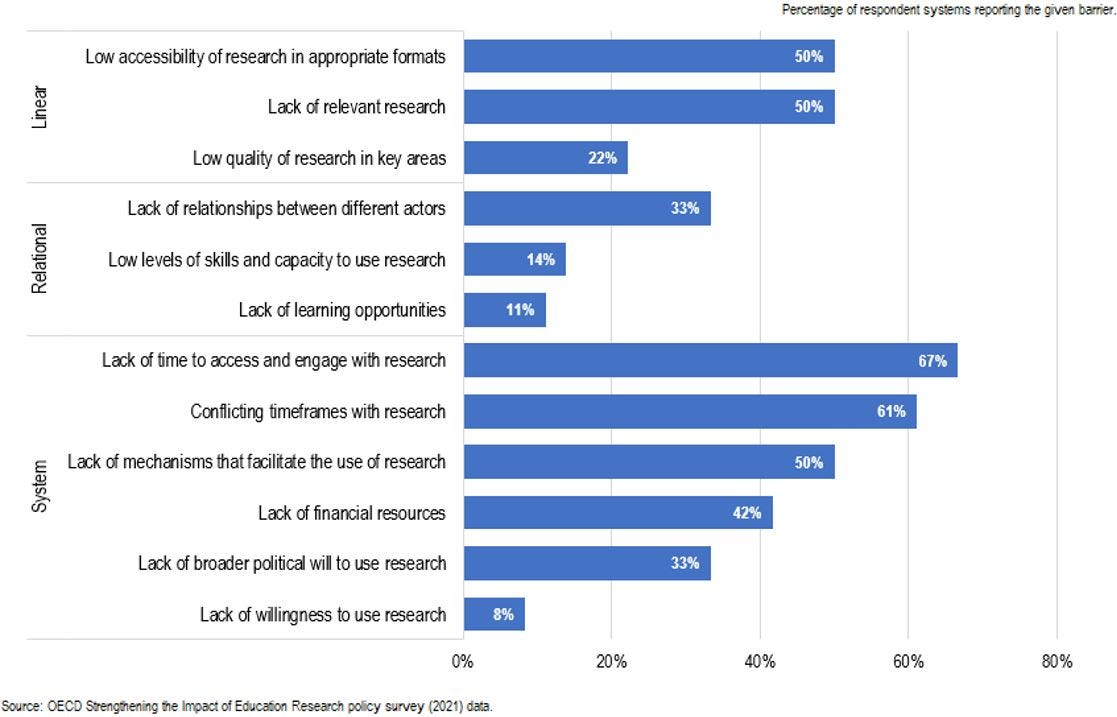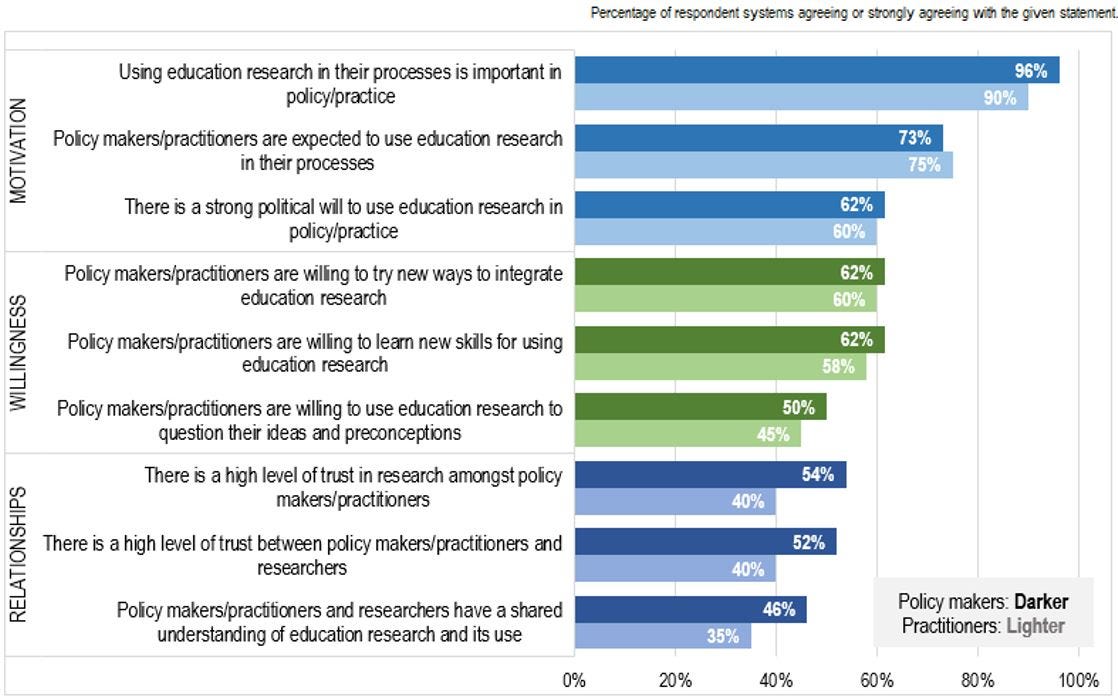There is now a diverse and growing body of education research, underpinned by increasingly robust methodologies. Yet, building a robust knowledge base still requires stronger theoretical foundations, better self-regulation to increase scientific rigour, and incentives (including, but not limited to funding) to strengthen the evidence through syntheses and replications. The production and use of education research can be more tightly linked through a systematic mapping of policy makers’ and practitioners’ needs and co-production. However, blue skies research remains important to explore new frontiers.
Education research
Building a robust, cumulative evidence base in education is fundamental to raising the quality and efficiency of education systems. Crucially, we need to facilitate the use of education research in decision-making at all levels of the education system: from classrooms and schools, to local, regional education offices and ministries.

Key messages
A large number of actors facilitate the use of research in policy and practice across the OECD. The landscape is dominated by research organisations, but the number of agencies with an explicit brokerage mission is also growing. Teacher education institutions, inspectorates, consultancies, research funders and other educational organisations play a role in generating evidence and facilitating its use by school leaders, teachers and policy makers. However, these efforts are rarely mapped, coordinated and evaluated in education systems, which risks reducing their overall efficiency.
There is now substantive evidence showing that making research findings accessible and disseminating them [linear approach] is necessary but not sufficient for research uptake. It is important to build quality relationships between different communities and actors, as well as skills and capacity to generate and thoughtfully engage with evidence [relational approach]. Governing knowledge in complex systems also requires creating infrastructure, appropriate incentives and strategic leadership at all levels [systems approach]. To date, such systems approaches are missing in most countries.
Context
Barriers to using education research in policy and practice
Despite a strong focus on research dissemination in the past two decades, low accessibility and lack of relevant research remain major barriers. Systems also report low levels of skills to use research. The most common barriers – lack of time to access and engage with research – suggest there are insufficient resources and incentives at the system level.
Barriers to facilitating research use in education systems

Culture and mindset for research engagement
The good news is that it appears policy makers and practitioners are overall quite motivated to use research. However, this motivation does not often extend to willingness to challenge one’s firmly held beliefs or preconceptions with research. The weakest dimension of research engagement culture relates to relationships, in particular trust.
Landscape of a culture of research engagement in education systems

Related publications
Programmes and projects
-
Across the OECD, enormous investment and effort has aimed to reinforce the quality, production and use of education research in policy and practice. Despite this, strengthening the impact of research in education policy making and practice remains a challenge for many systems.Learn more
-
The Centre for Educational Research and Innovation (CERI) provides and promotes international comparative research, innovation and key indicators, explores forward-looking and innovative approaches to education and learning, and facilitates bridges between educational research, innovation and policy development.Learn more
-
The Research, Development and Innovation (RDI) programme established by the PISA Governing Board in 2018 explores how different areas of the assessment programme (e.g. test design, scoring methodologies) can be improved.Learn more
-
Large-scale assessments of social and emotional skills mainly use students’ self-assessments, which have some flaws in terms of comparability and, to some extend, validity and interpretability. Smaller studies are trialling more direct assessments of these skills. Work is needed to translate the innovations made in these trials and test them on larger, international scales. » A better understanding of social and emotional skills will lead to better inclusion of these skills in education.Learn more
-
Data and digital technologies are among the most powerful drivers of innovation in education, offering a broad range of opportunities for system and school management, as well as for teaching and learning. But they also create new policy issues as countries face challenges to reap the benefits of digitalisation in education while minimising its risks.Learn more
-
Creativity and critical thinking prepare students for innovative economies and improve wellbeing. However, educators often lack guidance on how to equip students with creativity and critical thinking within subject teaching. Education systems have likewise rarely established ways to systematically assess students’ acquisition of creativity and critical thinking.Learn more






